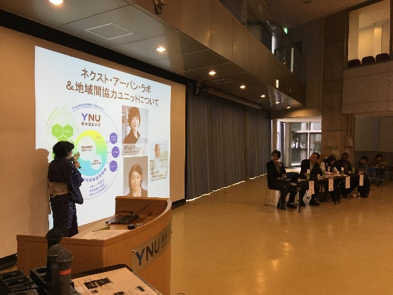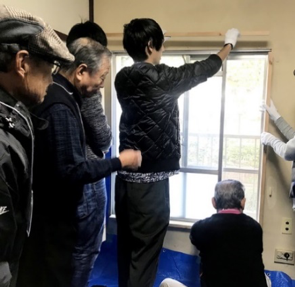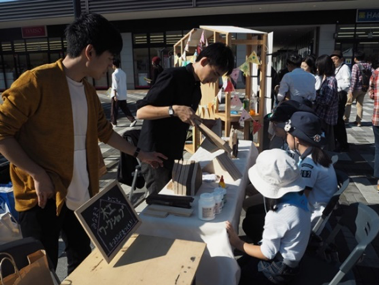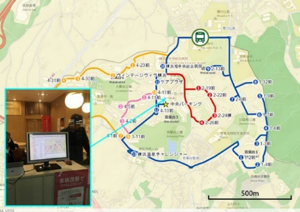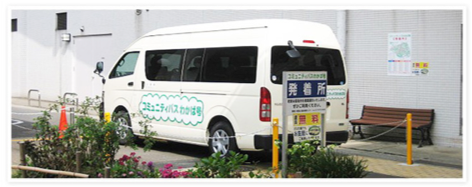Next Urban Lab is a way for us at Yokohama National University to carry out teaching, research, and practical work with a focus on the fields of Yokohama and the Kanagawa region, and present the results widely. Our goal is to construct a regional knowledge base that draws on the special appeal of Yokohama and the Kanagawa region by working with local residents, administrations, companies, NPOs, and more.
〇Creativity and Sustainability for Suburban Residents Compared to the central city, the suburbs show maturation of relationships with neighbors over time, but they tend to be closed to the outside and lack community diversity. We need to build ways to regenerate and reform the suburbs by working with a diverse range of actors so that we can come up with new measures for issues such as aging populations, single-person households, empty houses, and so on. This unit was launched in the 2018 academic year to integrate a number of related themes that used to be treated individually. Our activities and research are focused on shared issues while taking into account the spatial differences between housing estates (danchi) and detached housing, and is designed to present general methods.
〇Minamiashigara Innovation Program
Starting in the 2017 academic year, we began working with the city of Minamiashigara, signing an agreement to work closely with goals that included “Participation and cooperation for initiatives to revitalize the region” and “Implementation of educational activities using the region as a field.” Using Minamiashigara as our field, we were able to discover regional issues and draw on the expertise in founding businesses we have built up over many years of growth strategy research.
This work, which started in Minamiashigara, spread to areas in the west of the Kanagawa region, such as Odawara, in the 2020 academic year. We shall continue to engage in initiatives designed to find solutions to issues faced by the western, more rural, half of the Kanagawa region, enhancing YNU’s research and teaching, and finding valuable ways to contribute to the region. A number of different issues related to forests, villages, rivers, and the sea exist in the western part of the Kanagawa region, so we are putting together a system by which a diverse range of YNU researchers can work together on them and provide results.
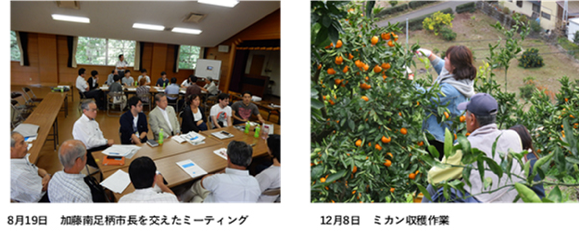
〇Sustainable Mobility System Research Unit
Ensuring sustainable mobility is an urgent issue in the suburban areas of Yokohama, which are both highly car-dependent and have an aging population. This Unit is an organization for practical research to solve regional issues with YNU’s Research Center for Sustainable Mobility System (Center Director: Fumihiko Nakamura, University Director and Vice President). It does this through the following pilot study in a suburban area of Yokohama which verified the effectiveness of policy options to achieve sustainable mobility in this area.
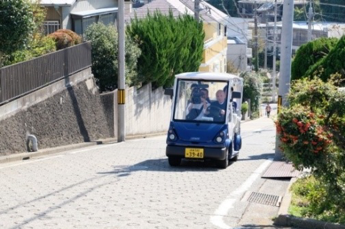
〇Inter-community Cooperation Unit
This Unit started its activities in 2018 with the involvement of external collaborators to exchange knowledge and practices locally in Japan and locally abroad (notably in developing countries). In the development of regions in Japan and overseas, especially through international aid, the vertical support model called technology transfer, in which experts deal with challenges by transferring knowledge and skills to residents, has been widely adopted. This unit, in contrast, aims to create a parallel system of cooperation as a model for the SDGs era to examine and control social problems with public involvement and knowledge transfer. We should consider the current environment as a society that coexists with problems are rather than one where problems are solved. It is developing as a center of expertise to search for ways to govern societies through new inter-community relationships between Japan and other countries.
